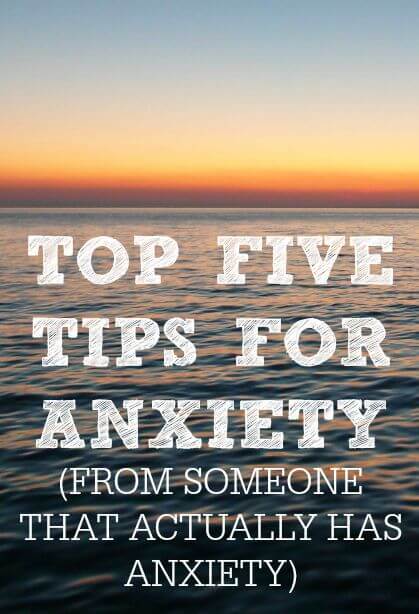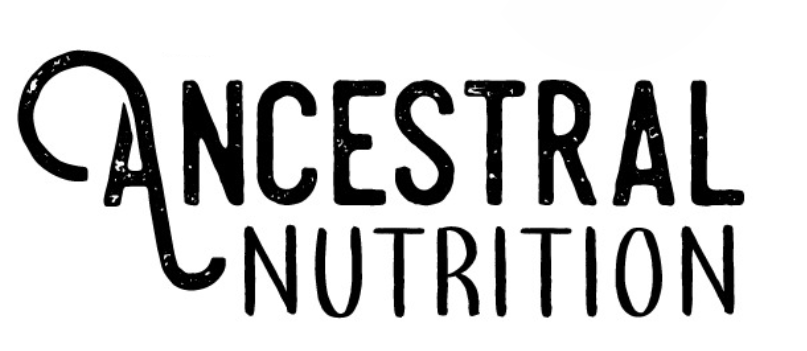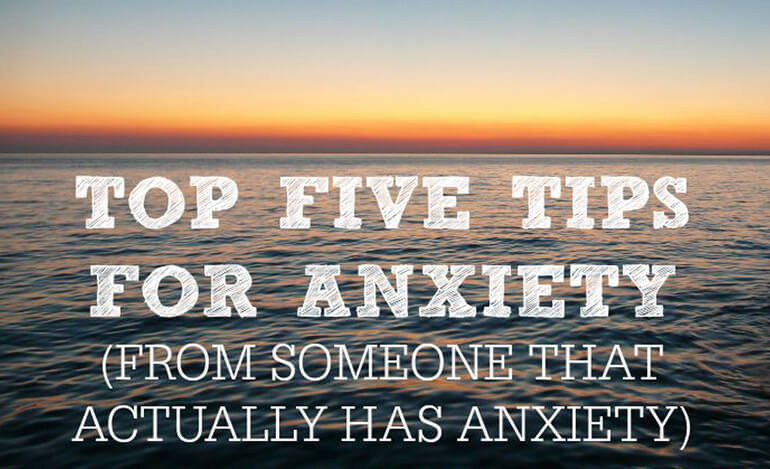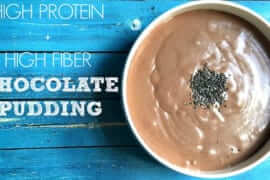I’ve had anxiety for as far back as I can remember. Which is about since I was 4-5 years-old. To “manage anxiety” was not a concept I would understand for a long time.
It worsened when I graduated high school, and feelings of terror would overcome me for seemingly no specific reason. Then it got even worse when I was around 21. This was when my anxiety wasn’t just a feeling of sheer terror, it was also a deep-seated feeling of absolute dread and hopelessness.
When I felt a panic attack coming on, which about 10-20 times a day, it was like falling down a dark, terrifying, desolate black hole. And I’d live there for a bit until I could pull myself out. And then the process would repeat. I thought I was losing my mind.
When I was in the midst of dealing with severe anxiety and I saw articles like this floating around the internet – they almost never actually helped me. This was for two reasons:
1 – I was so deep in and wrapped in my cloud of anxiety that I never tried any of the tips because I assumed my anxiety was so much more severe than anyone else’s that the tips couldn’t possibly help me.
2 – The tips were generic and kind of sucked. Ie: “meditate, breathe, go to your happy place.” And while those aren’t horrible suggestions, I’ve found that they aren’t specifically helpful for those dealing with anxiety.
Here’s what I’ve found helps me manage anxiety and has helped others I’ve worked with.
Tip #1 – Eat healthy fats. Specifically…
When I was in the midst of my worst anxiety, I was getting next to zero nutrients from my food. My digestion was wrecked, so I also wasn’t absorbing nutrients. My blood sugar was completely out of whack. I thought I was being so healthy because I was drinking a giant fruit smoothie for breakfast (which was mostly just straight sugar), a turkey sandwich for lunch and usually brown rice, veggies and chicken for dinner.
While most people assume this is a healthy diet – it’s quite the opposite. I was eating a ton of sugar and carbohydrates, and getting very little healthy fat. This is crucial for those of us who suffer from anxiety.
Your brain is made up of fat. Fat is brain food.
I’m not talking about French fries and pizza. I’m talking about organic butter, grass-fed meat, wild salmon, olive oil, avocados, coconut oil and other healthy, unadulterated fats. These fats are rich in vitamins A, E, D and K as well as the omega-3s EPA and DHA.
I was deeply skeptical of everything when I was dealing with my anxiety. Sure, it might’ve worked for someone else, but it probably wouldn’t work for me. I’m not sure why I had that mentality. If you do, I’m telling you this works for me. And here’s some science to back it up:
Effect of Omega-3s on Major Depressive and Anxiety Disorders
Natural Remedies for Depression and Anxiety: The Mental Benefits of Omega 3 Fish Oil
Omega-3s Beneficial Effects on Anxiety and Cognition
These are just a few doctors and studies discussing the beneficial effects of healthy fats.
Basically, you need to feed your brain.
We know that our bones deteriorate if we don’t consume enough calcium and magnesium. Eating junk food can lead to skin issues like eczema and breakouts. Eating sugar and refined carbohydrates can lead to gut issues and constipation. We know all of this.
Likewise, if you’re not eating to feed the brain, it can lead to issues like poor cognitive function, depression, and anxiety.
My favorite fats are from seafood, grass-fed meat, butter, avocados and olive oil. I take a tablespoon of coconut oil every morning and a teaspoon of this cod liver oil every night.
Tip #2 and #3 – Eat healthy foods that support your digestion, eliminate foods that don’t – and eat probiotics.
I had to lump these two together because they’re so interconnected. When I was in my early twenties and dealing with anxiety so severe I thought I was going crazy, I also wouldn’t use the bathroom for days. This is not a coincidence. My digestion was so stuck and slow moving – which produced more toxins in my digestive tract and backed everything up. It was horrible.
Friends, what’s happening in the gut is happening in the brain.
It’s called the gut-brain axis. f you’re dealing with constipation, indigestion, stomach cramps, diarrhea or digestive issues, it’s going to affect your brain. From Harvard Medical School,
The brain has a direct effect on the stomach. For example, the very thought of eating can release the stomach’s juices before food gets there. This connection goes both ways. A troubled intestine can send signals to the brain, just as a troubled brain can send signals to the gut. Therefore, a person’s stomach or intestinal distress can be the cause or the product of anxiety, stress, or depression. That’s because the brain and the gastrointestinal (GI) system are intimately connected — so intimately that they should be viewed as one system. (emphasis mine)
I can’t tell you how many people I’ve met and worked with who complained of depression and/or anxiety that have altered gut function. They go hand in hand. Majority of our serotonin receptors are found in the gut, therefore if you suffer from gut issues, your normal serotonin function will be altered as well.
To improve gut function, it’s best to eat whole, unprocessed meats, seafood, veggies and healthy fats.
It’s best to eliminate foods that can irritate the gut – like grains, gluten, sugar and potentially even dairy. While removing these foods, it’s a great idea to add gut healing foods like bone broth and fermented foods – aka probiotics.
Probiotics are beneficial to gut flora normally found in the gut, but for a variety of reasons, the beneficial gut flora can be reduced, diminished and even overthrown by bad bacteria in the gut. When I was in my early twenties and experiencing the worst anxiety of my life, I was feeding the bad bacteria with tons of sugar and carbohydrates from “healthy” whole grains.
If you’re thinking, really, you expect probiotics to improve my anxiety? Let me assure you, it’s science! Plus – it works for me.
In one study, scientists found that giving mice probiotics reversed their autistic symptoms (of which anxiety was one).
A study from the University of Toronto found that supplementing with probiotics in people with chronic fatigue syndrome led to reduced feelings of anxiousness.
In 2011, scientists found that giving people a probiotic for 30 days reduced their depression and anxiety.
A study out of UCLA found that women who ate yogurt twice a day had improvements on the part of the brain that process emotion, and improved anxiety symptoms.
For probiotics, I eat fermented foods daily. Examples of fermented foods include kimchi, sauerkraut, pickles, yogurt, kefir, and kombucha. I also take this probiotic daily.
Tip #4 – Use magnesium.
It’s been estimated that over 90% of Americans are deficient in magnesium. Which makes sense. Our soil has been depleted of it, and our food rapidly loses magnesium the longer it is from the time it’s picked to the time it reaches your plate.
Magnesium is essential for a balanced mood. It’s a mineral that provides feelings of calm and relaxation. It helps us sleep. But when we’re stressed, our bodies rapidly deplete magnesium. When we eat sugar, our body uses magnesium to process it. Considering that most people are stressed and regularly eat sugar, chances are that you’re not just lacking magnesium, you might be severely deficient.
In Psychology Today, Dr. Emily Deans discusses case studies on the effects of magnesium,
A 40 year-old “irritable, anxious, extremely talkative, moderately depressed” smoking, alchohol-drinking, cocaine using male took 125mg magnesium taurinate at each meal and bedtime, and found his symptoms were gone within a week, and his cravings for tobacco, cocaine, and alcohol disappeared. His “ravenous appetite was supressed, and … beneficial weight loss ensued.”
A 59 y/o “hypomanic-depressive male”, with a long history of treatable mild depression, developed anxiety, suicidal thoughts, and insomnia after a year of extreme personal stress and bad diet (“fast food”). Lithium and a number of antidepressants did nothing for him. 300mg magnesium glycinate (and later taurinate) was given with every meal. His sleep was immediately restored, and his anxiety and depression were greatly reduced, though he sometimes needed to wake up in the middle of the night to take a magnesium pill to keep his “feeling of wellness.” A 500mg calcium pill would cause depression within one hour, extinguished by the ingestion of 400mg magnesium.
Oral magnesium is poorly absorbed, which I why I use and recommend transdermal magnesium. I use this magnesium lotion.
Tip #5 – Supplement wisely. And one other thing…
I’m not suggesting you definitely use these supplements. I’m suggesting you work with a qualified health professional (me, a naturopath, etc) to find which products are right for you individually. Personally, here’s what I take every day:
If I don’t keep up with these supplements daily, I notice a difference. Again, I’m not making these recommendations for you. I am not your doctor. These are what I take for me.
BONUS
I’ve found that using essential oils every day also helps me manage mood. Immensely. I’m incredibly thankful I found them. To check out the essential oil blends I started making myself and began selling, click here.
I hope this article helps you in some way. It wasn’t an easy road for me to pull myself out of the depth of soul-crushing anxiety. But I did it. It took years and tons of experimentation, and these are my tops five tips for anxiety that helped me actually overcome it. I hope they can help you too.

Photo courtesy of here.




